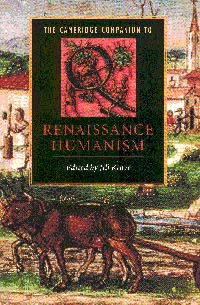Book contents
- Frontmatter
- 1 The origins of humanism
- 2 Classical scholarship
- 3 Humanism in script and print in the fifteenth century
- 4 The humanist reform of Latin and Latin teaching
- 5 Humanist rhetoric and dialectic
- 6 Humanists and the Bible
- 7 Humanism and the origins of modern political thought
- 8 Philologists and philosophers
- 9 Artists and humanists
- 10 Vernacular humanism in the sixteenth century
- 11 The new science and the traditions of humanism
- 12 Humanism and Italian literature
- 13 Humanism and English literature in the fifteenth and sixteenth centuries
- 14 Humanism and seventeenth-century English literature
- A guide to further reading in English
- Biographical index
3 - Humanism in script and print in the fifteenth century
Published online by Cambridge University Press: 28 May 2006
- Frontmatter
- 1 The origins of humanism
- 2 Classical scholarship
- 3 Humanism in script and print in the fifteenth century
- 4 The humanist reform of Latin and Latin teaching
- 5 Humanist rhetoric and dialectic
- 6 Humanists and the Bible
- 7 Humanism and the origins of modern political thought
- 8 Philologists and philosophers
- 9 Artists and humanists
- 10 Vernacular humanism in the sixteenth century
- 11 The new science and the traditions of humanism
- 12 Humanism and Italian literature
- 13 Humanism and English literature in the fifteenth and sixteenth centuries
- 14 Humanism and seventeenth-century English literature
- A guide to further reading in English
- Biographical index
Summary
There was no humanism without books. They were the prime material on which the movement was founded and the natural medium through which it was transmitted. All humanists were consumers, and usually also producers, of books in manuscript. Many humanists first gained a reputation by seeking out and accumulating books. Humanists early associated themselves with the printing press when it came into being in the mid-fifteenth century and provided authors, editors and market for its products. Some, preeminently Erasmus, so thoroughly harnessed the great power of print that they were able to project themselves on to a European stage. In a less controlled way, this had happened a century and more before with the manuscript diffusion of the works of the early Italian humanists. Throughout the Renaissance, secular and ecclesiastical princes with cultural pretensions built themselves up with libraries as much as any other trappings of civilization. A book was often the vehicle of an alliance between culture and power, in the form of translations or dedications of original works, commissioned or unsolicited.
The common bond of humanism, uniting many disparate strands of interest, was the study, absorption and imitation of the classics, and the common style was a classicizing humanistic Latin. What was distinctive about the humanistic book? In the first place, it was a new manner of the preparation and writing of manuscripts: new in that it turned against current practice in these matters, but backward-looking in its attempt to recover classical virtues of clarity and purity.
- Type
- Chapter
- Information
- The Cambridge Companion to Renaissance Humanism , pp. 47 - 62Publisher: Cambridge University PressPrint publication year: 1996
- 6
- Cited by



